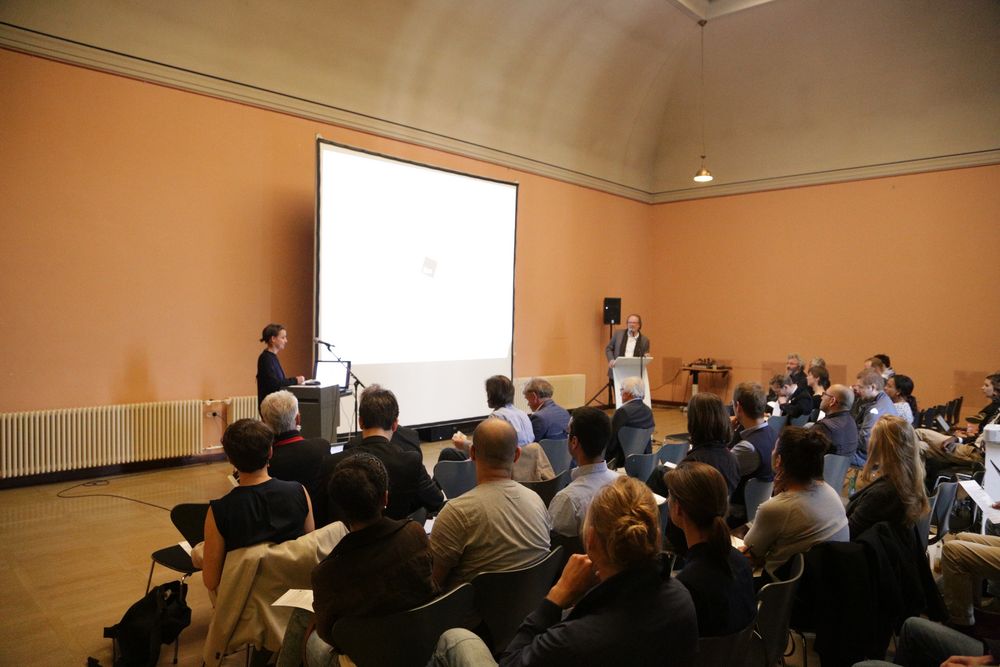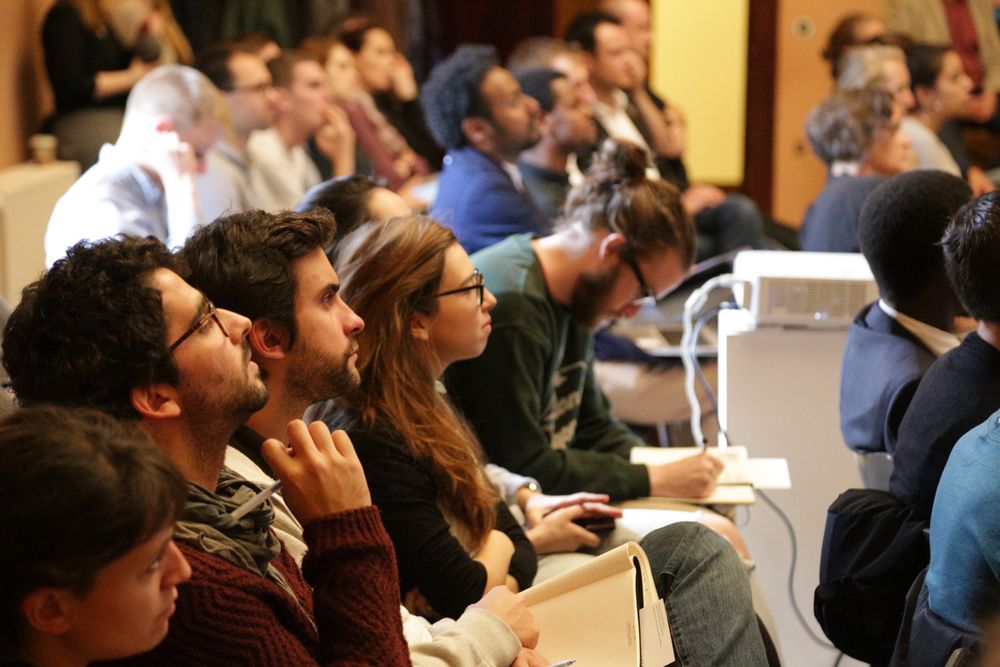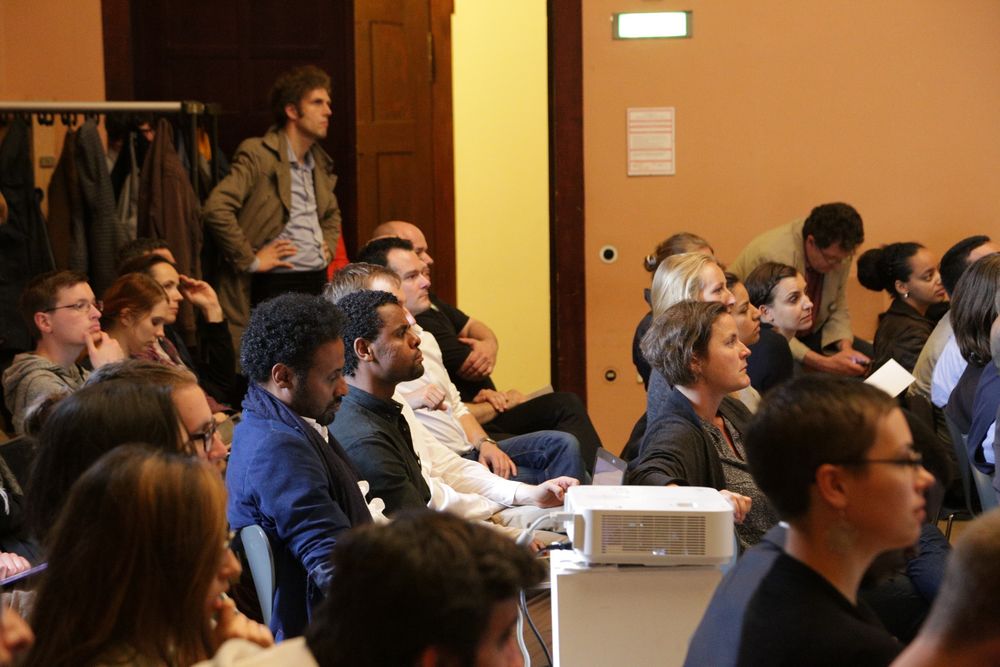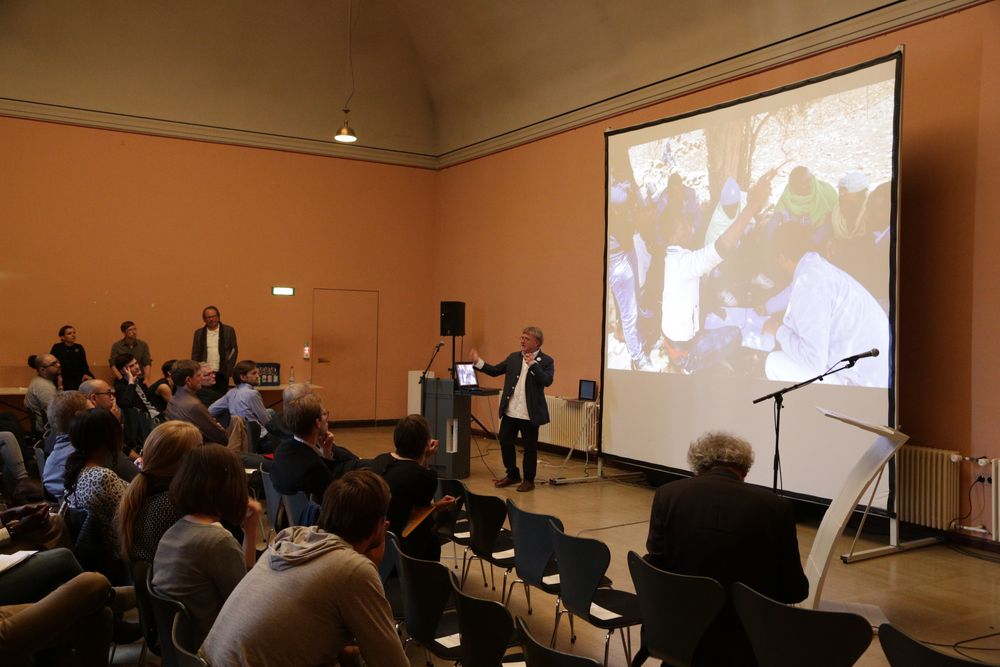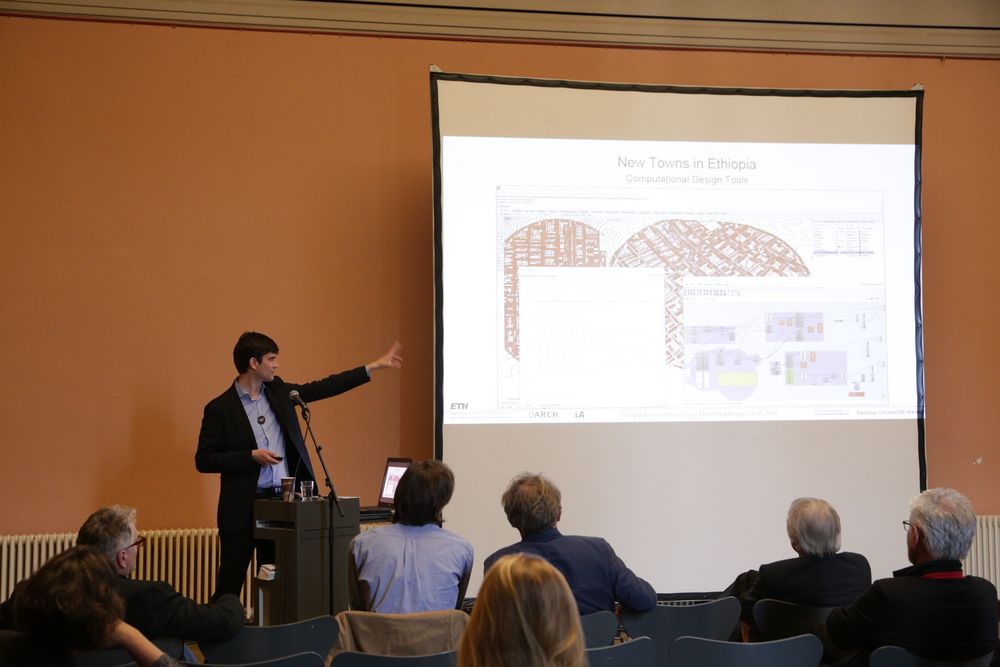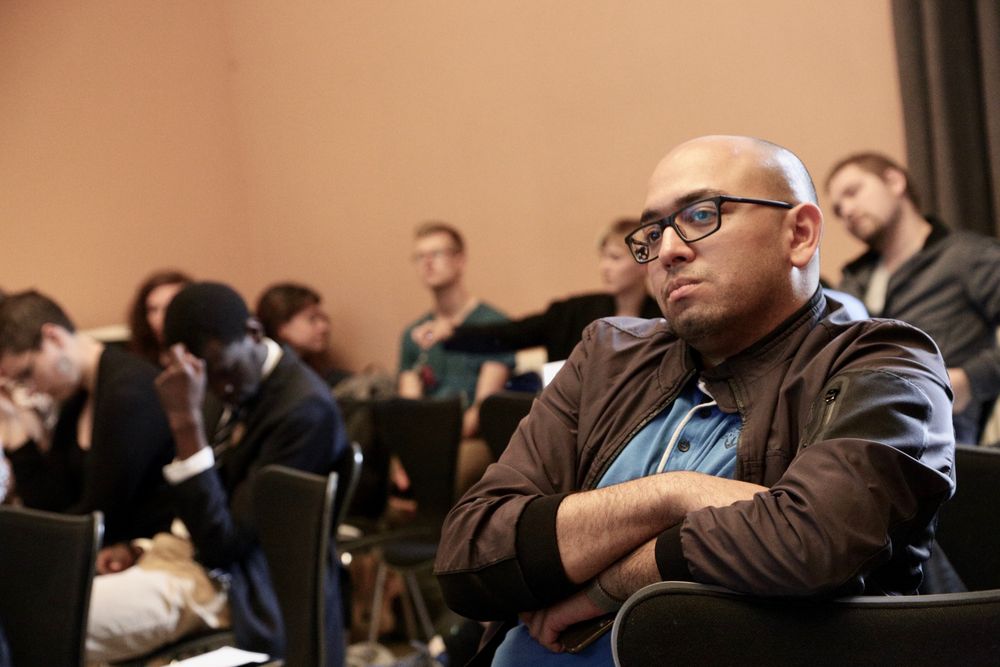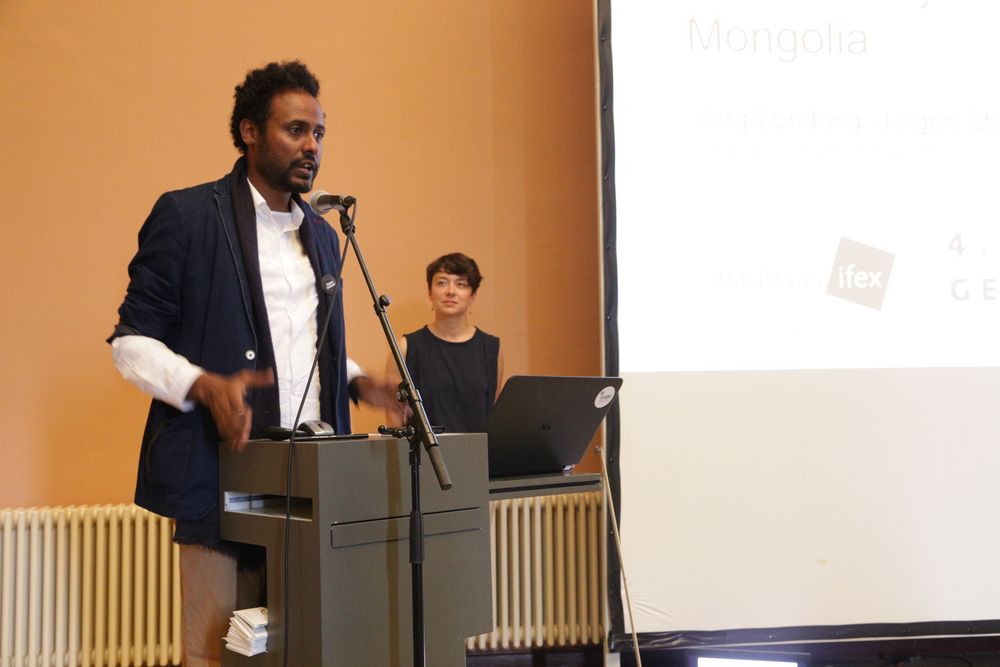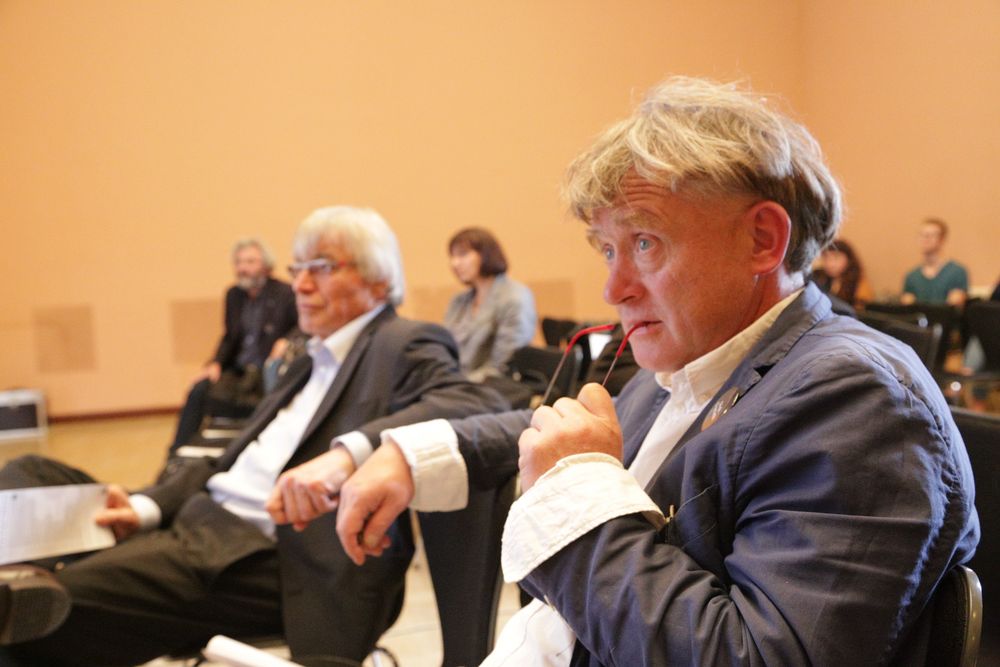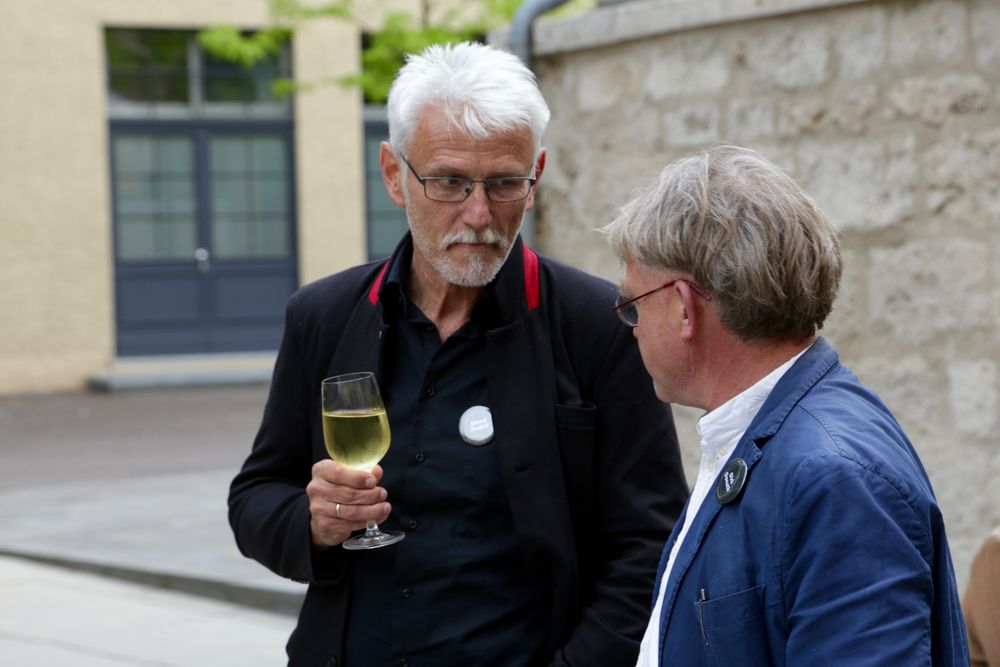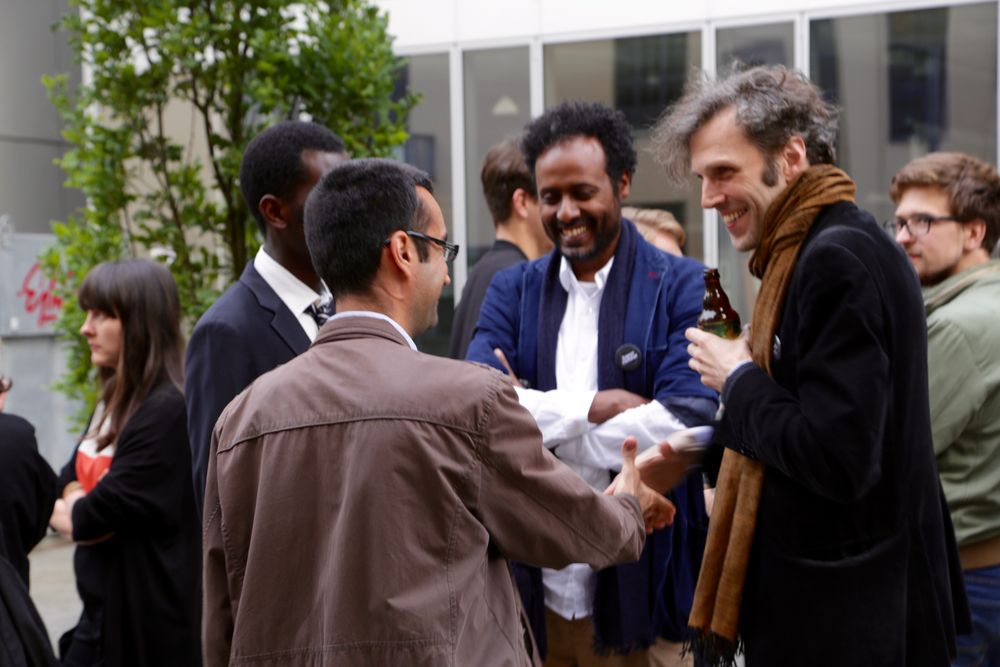ifex.kolloquium 2016
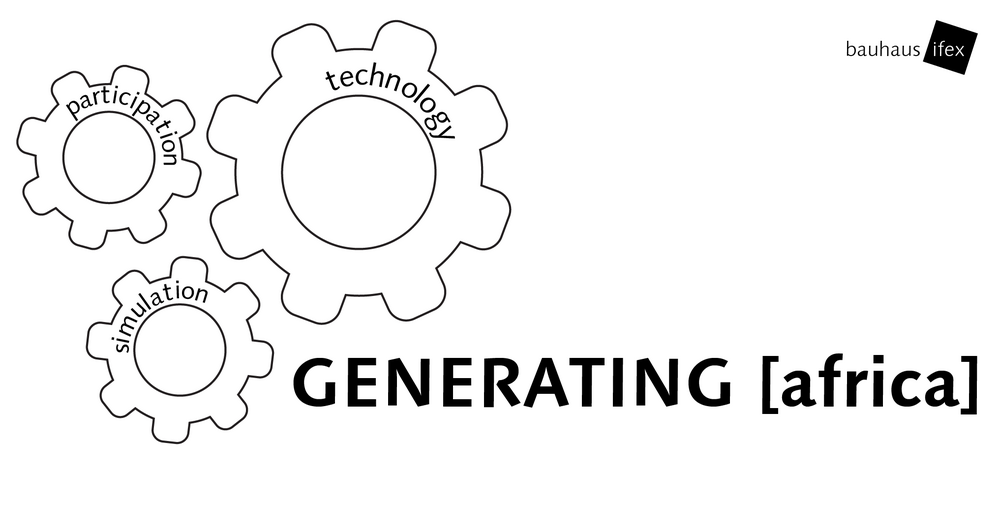
introduction
On May 25th, 2016, the bauhaus-institute for experimental architecture (bauhaus.ifex) is hosting a colloquium with talks and discussions on the topic »GENERATING [africa]«.
Currently, the African continent is given particular attention – whether as future market or as a place of flight and expulsion. In the fields of architecture and construction, meanwhile, the challenges remain widely unexplored while getting increasingly caught between issues of migration, rapid population increase, and climate change.
Hereby the colloquium poses the question which digital and participative tools can support planners and researchers in this challenging context; as well as in the rest of the world.
The 2016 ifex.kolloquium is intended to serve architects and engineers as well as industry representatives and researchers as a space to discuss challenges and different approaches. At the same time, the exchange with African partners generates new perspectives on one’s own work in Germany and Europe.
The colloquium »GENERATING [africa]« is the fourth conference of the bauhaus.ifex which was founded as an association of designing and constructing architects at the faculty of architecture and urbanism in 2013. It is devoted to the built experiment in scale 1:1.
Am 25. Mai 2016 findet am bauhaus-institut für experimentelle architektur (bauhaus.ifex) ein Kolloquium mit Vorträgen und Diskussionen zum Thema »GENERATING [africa]« statt.
Dem afrikanischen Kontinent wird derzeit verstärkt Aufmerksamkeit geschenkt – sei es als Zukunftsmarkt oder als Ort von Flucht und Vertreibung. Im Bereich Architektur und Bauen indes sind die Herausforderungen im Spannungsfeld von Migration, rapidem Bevölkerungswachstum und Klimawandel enorm und weitestgehend unerforscht.
Dabei steht die Frage im Raum, mithilfe welcher digitalen und partizipativen Mittel die Erforschung und Planung von gebauten Strukturen in diesem schwierigen Kontext, aber auch weltweit, unterstützt werden kann.
Das ifex.kolloquium 2016 soll hierbei Architekt_innen und Ingenieur_innen sowie Vertreter_innen der Bauindustrie und der Forschung als Raum dienen, um Herausforderungen und Lösungsansätze zu diskutieren. Gleichzeitig entsteht durch den Austausch mit afrikanischen Kolleg_innen eine neue Perspektive auf das eigene Wirken in Deutschland und Europa.
Das Kolloquium »GENERATING [africa]« ist die vierte Tagung des bauhaus.ifex, welches 2013 als Verbund der entwerfenden und konstruierenden Architekt_innen an der Fakultät Architektur und Urbanistik gegründet wurde. Es widmet sich baulichen Experimenten im Maßstab 1:1.
Programmflyer zum Runterladen
lectures and talks
| 1:oo PM | welcome & introduction |
| 1:15 PM | elevator pitch |
| 2:oo PM | Sadiq Gulma (BUW) |
| 2:2o PM | Marine Miroux (Ziegert | Roswag | Seiler Architekten Ingenieure Berlin) |
| 2:4o PM | Lukas Veltruský (BUW and Lukas Veltruský Berlin) |
| 3:oo PM | coffee break |
| 3:3o PM | Prof. Dr.-Ing. Dirk Donath (BUW and EiABC Addis Ababa) |
| 3:5o PM | Jun.-Prof. Dr. Reinhard König (BUW and ETH Zürich) |
| 4:1o PM | Dr. Wolfgang Loibl (AiT Wien) |
| 4:3o PM | Prof. Dr. Frank Eckardt (BUW) |
| 4:5o PM | Dr. Zegeye Cherenet (EiABC Addis Ababa) |
| 5:1o PM | Prof. Dr.-Ing. Jörg Londong (BUW) |
| 5:3o PM | Tom van Geest (welovecity Rotterdam) |
| 5:5o PM | closing comments |
| 6:oo PM | bbq & live band |
phd session
Wednesday, May 25th, 2016 9 AM - 12 PM
at "Roter Saal", Belvederer Allee 5, ground floor
Language: English
Overall aim: The overall aim of the PhD colloquium is to connect PhD students at Bauhaus-Universität with each other and with external PhD students from the area of architecture and urbanism. The colloquium will host 4-6 students presenting as well as other students and junior researchers in the audience. The colloquium aims to establish a nice and comfortable environment, where you will feel welcome and be free to not only present and receive feedback on your research, but also address a wider range of questions concerning your PhD experience overall.
Target audience: We welcome all PhD students within the wider field of architecture and urbanism with a special interest in the overall topics of the 2016 ifex.kolloquium. Ideally, student participants will have completed about one year of doctoral study or progressed far enough in their research to have a structured proposal idea.
Participation method: The PhD colloquium will be highly interactive. You will present your own research and your questions to the audience in a 10 min presentation. The other PhD students will have read your summary and will discuss your questions with you.
Requirements for submissions: Your submission can be in English or German and should consist of two parts, namely
- a summary that describes your research,
- a short CV
ad 1.: A four-page summary of their thesis research, including the problem being addressed, intended methodology and plan of research, and the type of input expected from the audience. Please distinguish between work that has been accomplished and that which remains to be completed. The writing should be in a proposal format to facilitate feedback from the panelists.
ad 2.: The brief personal CV (max. 1 page) should indicate your prior education, work experiences, and related skills.
Deadline for registration: April 30, 2016
(email to nicole.baron[at]uni-weimar.de with your name, affiliation, and a brief description of your research)
Deadline for submission of summary and CV: May 15, 2016
(email to nicole.baron[at]uni-weimar.de)

